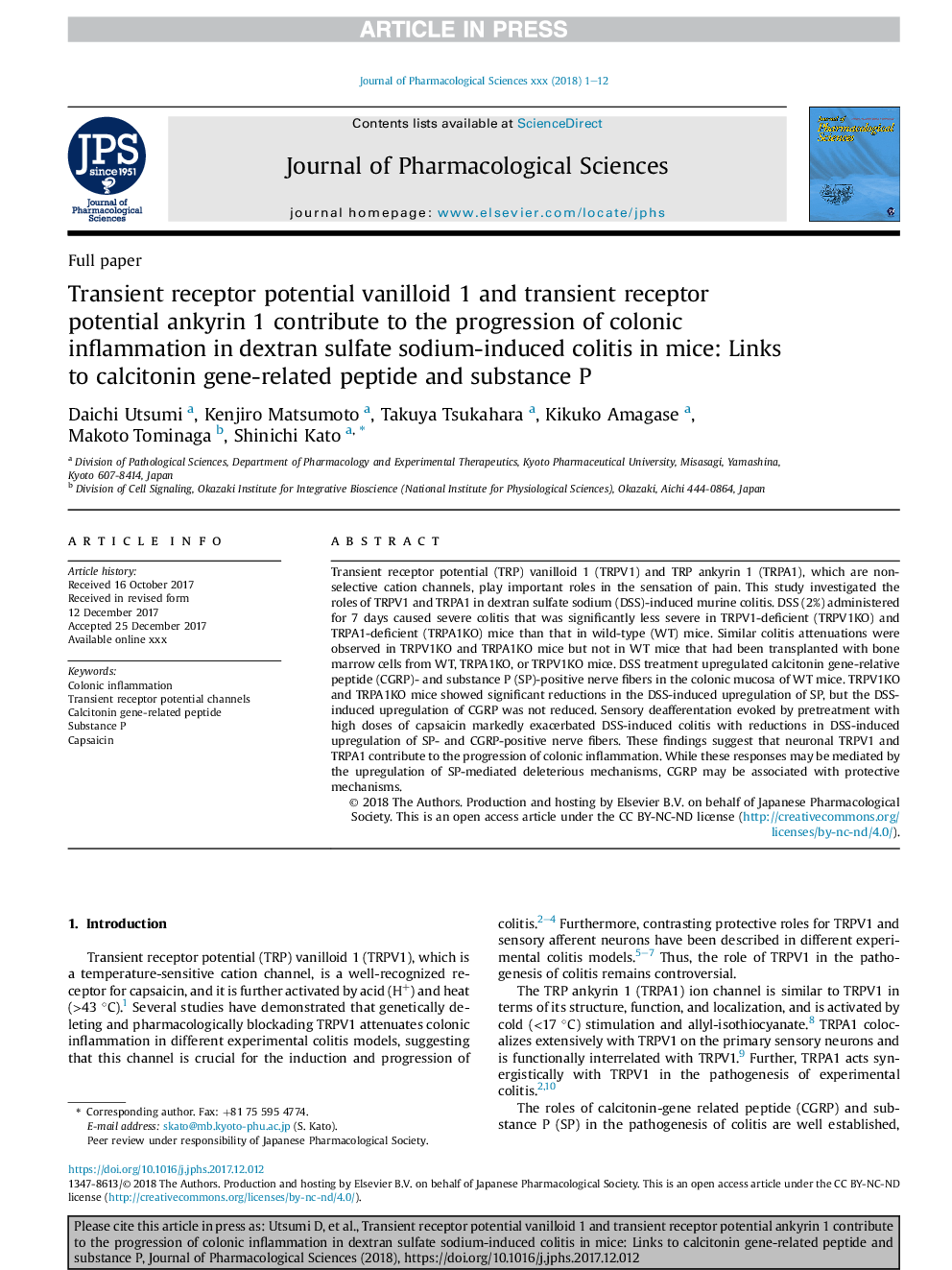| Article ID | Journal | Published Year | Pages | File Type |
|---|---|---|---|---|
| 8532858 | Journal of Pharmacological Sciences | 2018 | 12 Pages |
Abstract
Transient receptor potential (TRP) vanilloid 1 (TRPV1) and TRP ankyrin 1 (TRPA1), which are non-selective cation channels, play important roles in the sensation of pain. This study investigated the roles of TRPV1 and TRPA1 in dextran sulfate sodium (DSS)-induced murine colitis. DSS (2%) administered for 7 days caused severe colitis that was significantly less severe in TRPV1-deficient (TRPV1KO) and TRPA1-deficient (TRPA1KO) mice than that in wild-type (WT) mice. Similar colitis attenuations were observed in TRPV1KO and TRPA1KO mice but not in WT mice that had been transplanted with bone marrow cells from WT, TRPA1KO, or TRPV1KO mice. DSS treatment upregulated calcitonin gene-relative peptide (CGRP)- and substance P (SP)-positive nerve fibers in the colonic mucosa of WT mice. TRPV1KO and TRPA1KO mice showed significant reductions in the DSS-induced upregulation of SP, but the DSS-induced upregulation of CGRP was not reduced. Sensory deafferentation evoked by pretreatment with high doses of capsaicin markedly exacerbated DSS-induced colitis with reductions in DSS-induced upregulation of SP- and CGRP-positive nerve fibers. These findings suggest that neuronal TRPV1 and TRPA1 contribute to the progression of colonic inflammation. While these responses may be mediated by the upregulation of SP-mediated deleterious mechanisms, CGRP may be associated with protective mechanisms.
Keywords
Related Topics
Health Sciences
Pharmacology, Toxicology and Pharmaceutical Science
Pharmacology
Authors
Daichi Utsumi, Kenjiro Matsumoto, Takuya Tsukahara, Kikuko Amagase, Makoto Tominaga, Shinichi Kato,
